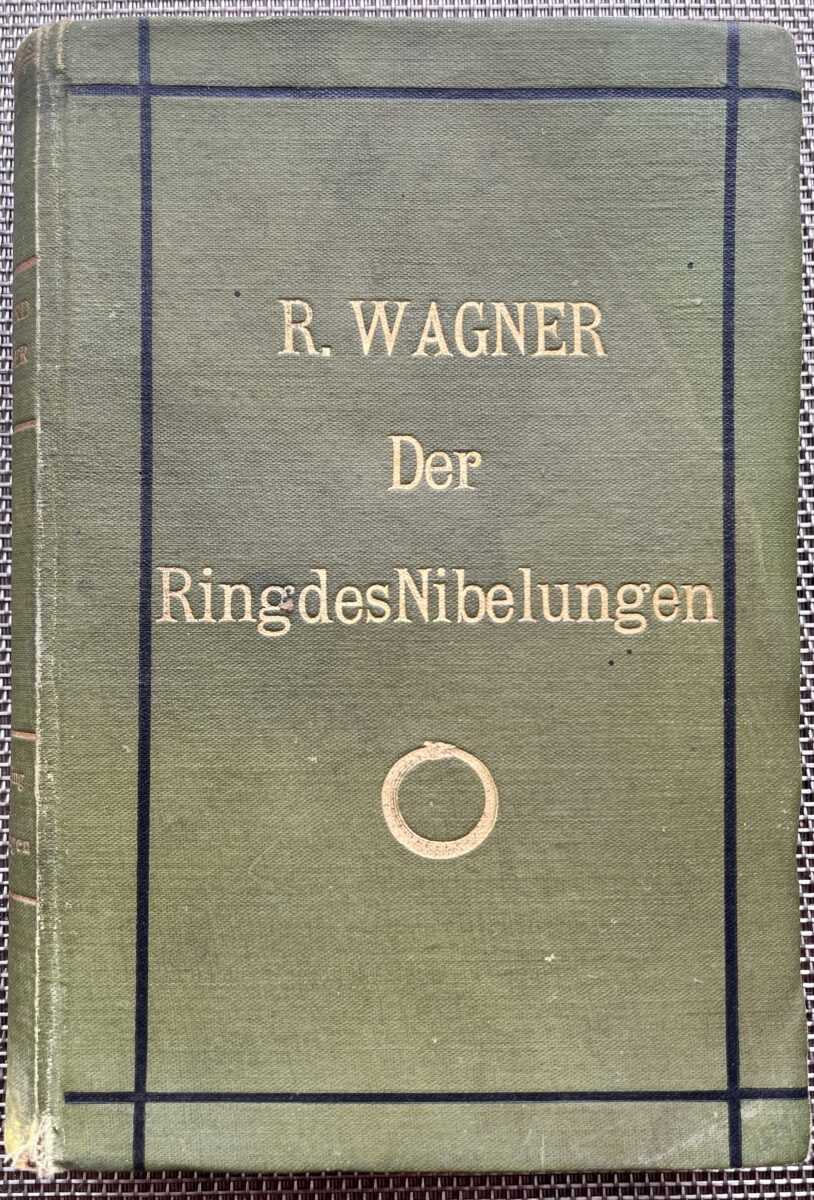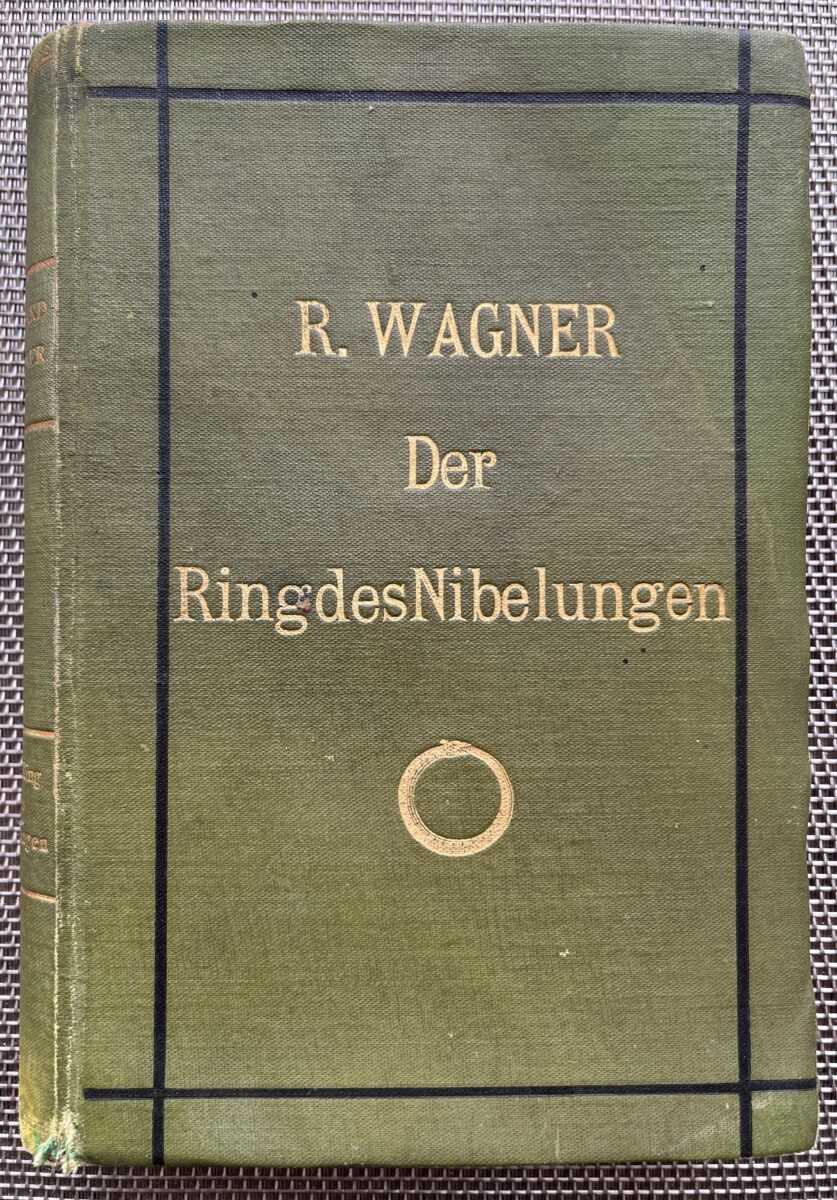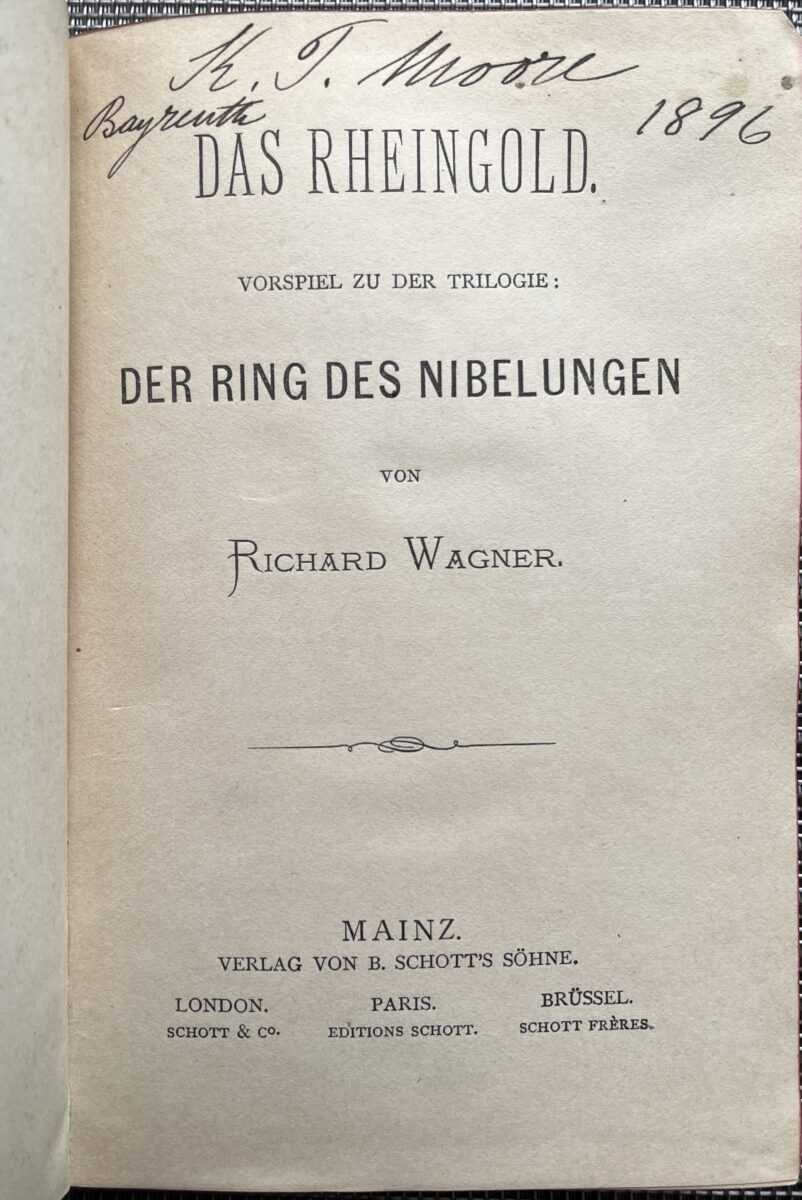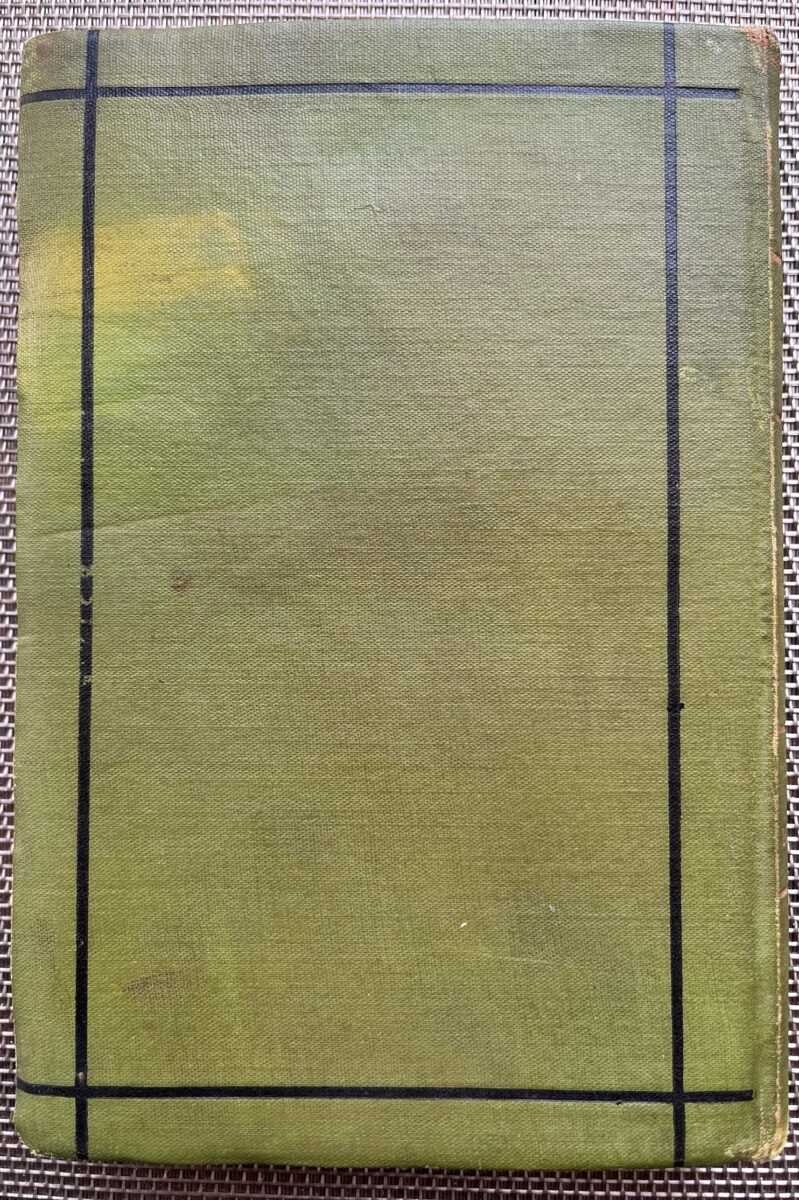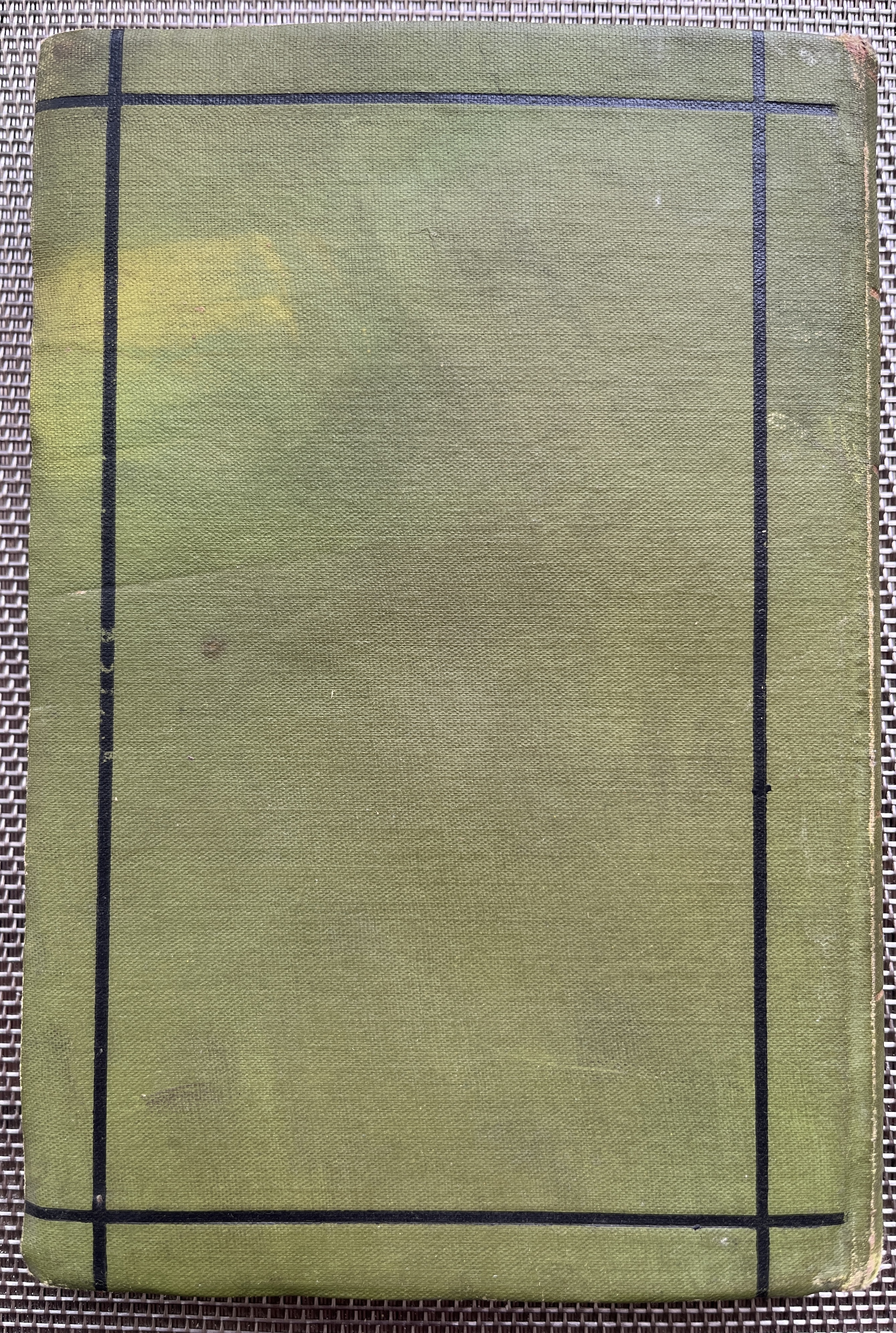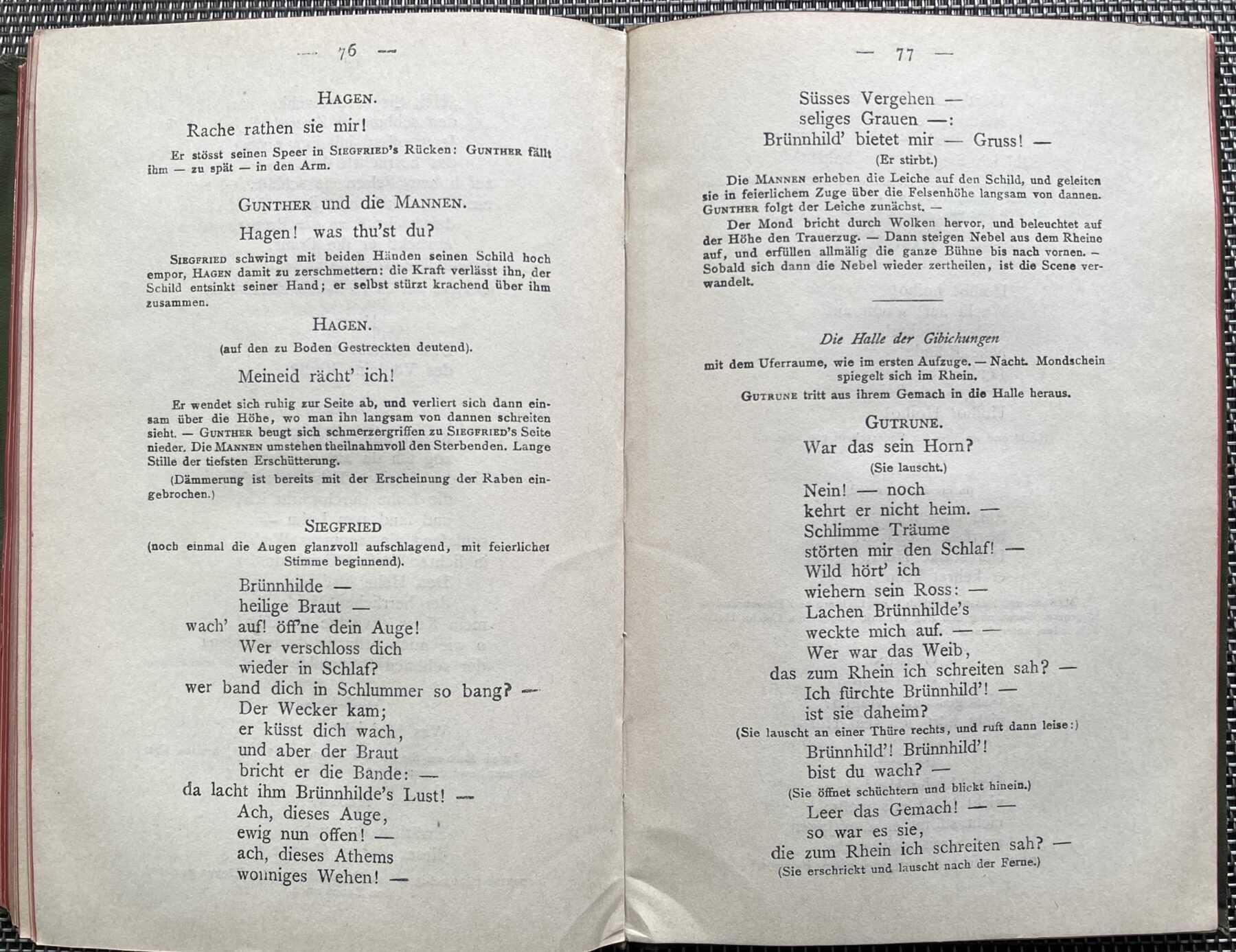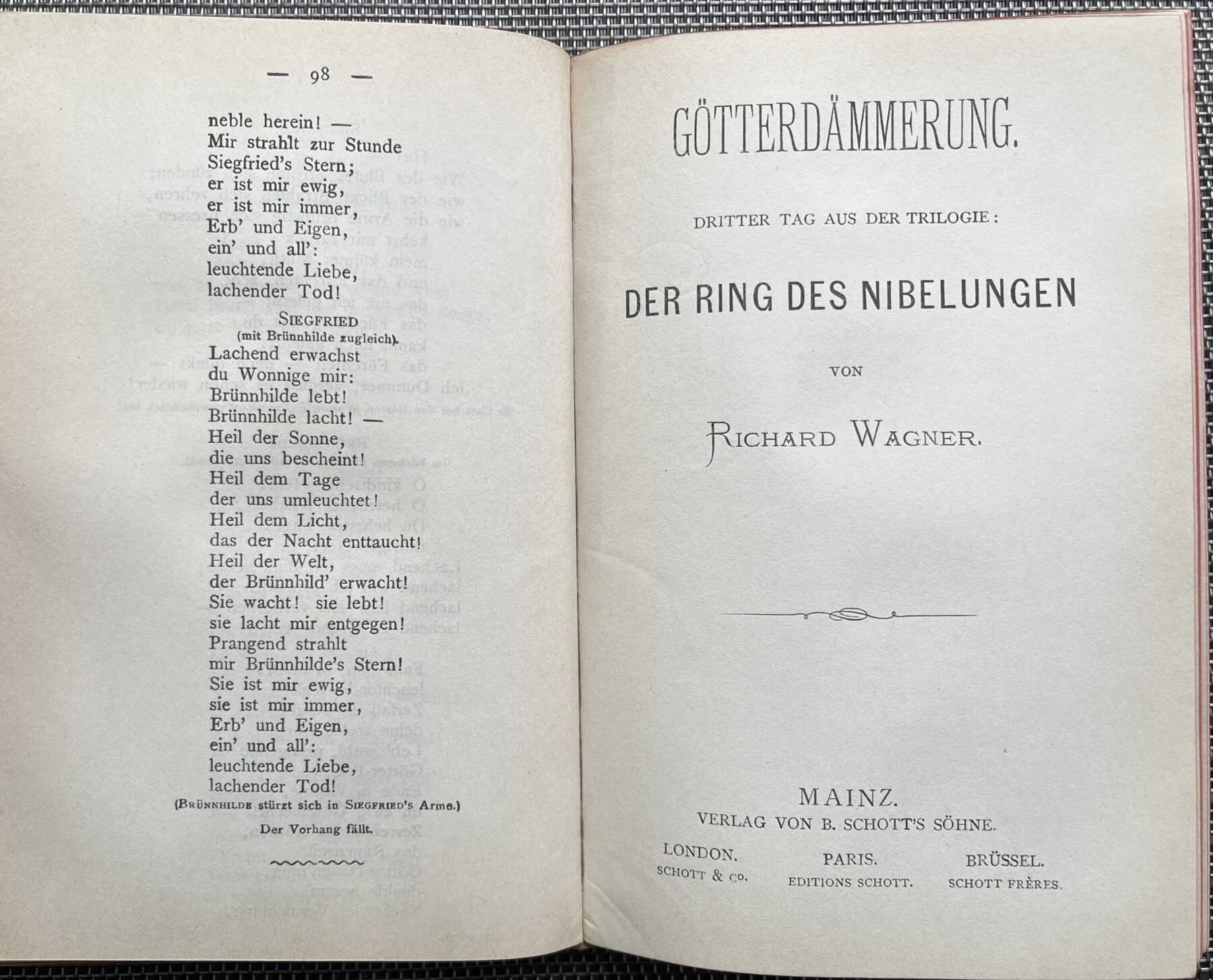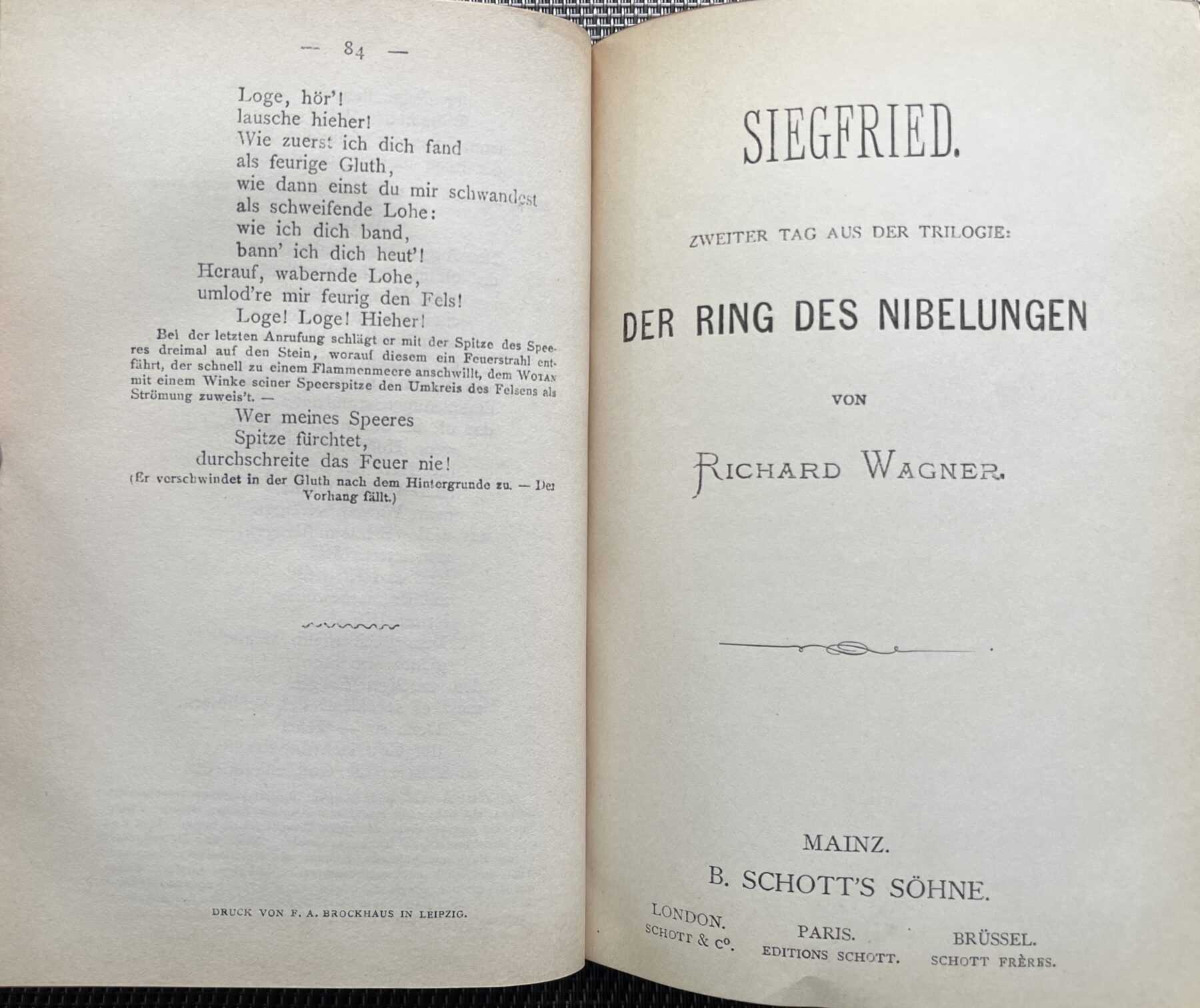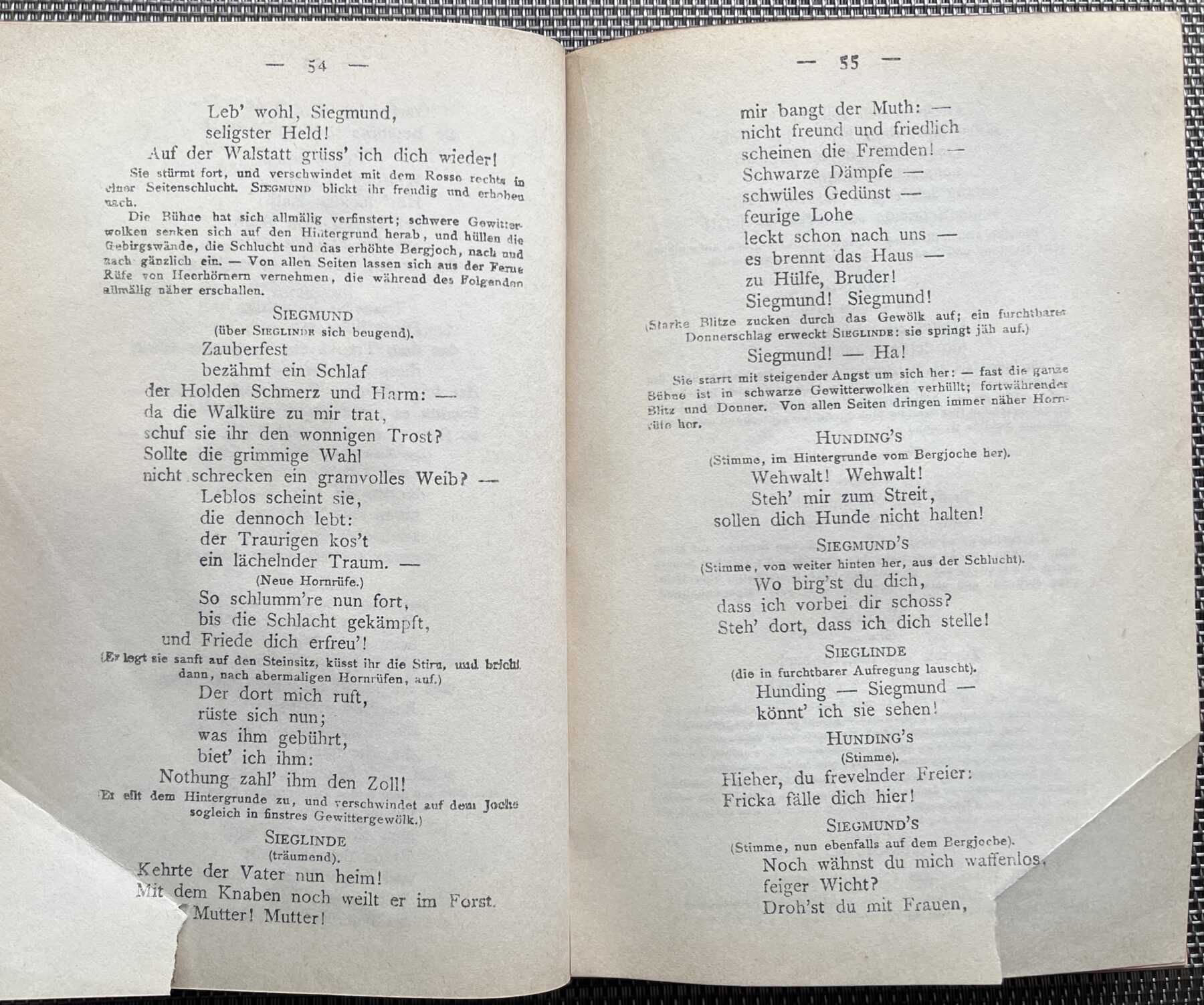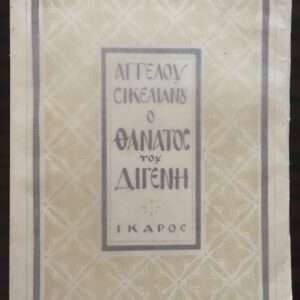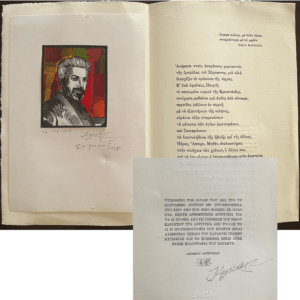1892, Richard Wagner, Original Libretto, Ring, Nibelungen, Schott’s Söhne, Bayreuth
520.00€
Description
Richard Wagner
Der Ring des Nibelungen – The Ring of the Nibelung
Das Rheingold (Vorspiel zu der Trilogie) – The Rhinegold
75 Pages
Die Walküre (Erster Tag aus der Trilogie) – The Valkyrie
84 Pages
Siegfried (Zweiter Tag aus der Trilogie)
98 Pages
Götterdämmerung (Dritter Tag aus der Trilogie) – Twilight of the Gods
Published by Verlag von B. Schott’s Söhne in Mainz in 1892
11 cm x 17 cm
Original Hard Binding
The book was recently valued at around 800 euros by experts at an auction house.
Wilhelm Richard Wagner (1813 – 1883) was a German composer, theater director, essayist, and conductor who is chiefly known for his operas (or, as some of his mature works were later known, “music dramas”). Unlike most opera composers, Wagner wrote both the libretto and the music for each of his stage works. Wagner revolutionized opera through his concept of the Gesamtkunstwerk (“total work of art”), whereby he sought to synthesise the poetic, visual, musical and dramatic arts, with music subsidiary to drama. The drama was to be presented as a continuously sung narrative, without conventional operatic structures like arias and recitatives. He described this vision in a series of essays published between 1849 and 1852. Wagner realized these ideas most fully in the first half of the 16-hour, four-opera cycle Der Ring des Nibelungen.
Der Ring des Nibelungen (The Ring of the Nibelung), is a cycle of four German-language epic music dramas. The works are based loosely on characters from Germanic heroic legend, namely Norse legendary sagas and the Nibelungenlied. The composer termed the cycle a “Bühnenfestspiel” (stage festival play), structured in three days preceded by a Vorabend (“preliminary evening”). It is often referred to as the Ring cycle, Wagner’s Ring, or simply The Ring.
About the book: This edition of Richard Wagner’s “The Ring of the Nibelung” was published in 1892 by the Verlag von B. Schott’s Söhne in Mainz. It is a printed edition of the text book (libretto) for Wagner’s famous opera cycle. The publisher B. Schott’s Söhne is one of the most renowned music publishers in Germany, which worked closely with Wagner. Schott published many of his works and played a key role in the dissemination of his music. This edition from 1892 contains the complete libretto of the “Ring”. The text also contains notes on Wagner’s visions, the mythological background and the dramaturgy. The libretto combines Wagner’s poetic writing style with his revolutionary idea of the “Gesamtkunstwerk”, in which music, text and staging form a unity. The book contains the hand written name of the visitor who attended the performance of the “Ring” in the Bayreuth Festival Hall in 1896.
The Bayreuth Festival (German: Bayreuther Festspiele) is a music festival held annually in Bayreuth, Germany, at which performances of stage works by the 19th-century German composer Richard Wagner are presented. Wagner himself conceived and promoted the idea of a special festival to showcase his own works, in particular his monumental cycle Der Ring des Nibelungen and Parsifal. Performances take place in a specially designed theater, the Bayreuth Festspielhaus (Festival Hall). Wagner personally supervised the design and construction of the theater, which contained many architectural innovations to accommodate the huge orchestras for which Wagner wrote as well as the composer’s particular vision about the staging of his works. The Festival has become a pilgrimage destination for Wagnerians and classical-music enthusiasts.
Additional information
| Languages | German |
|---|

